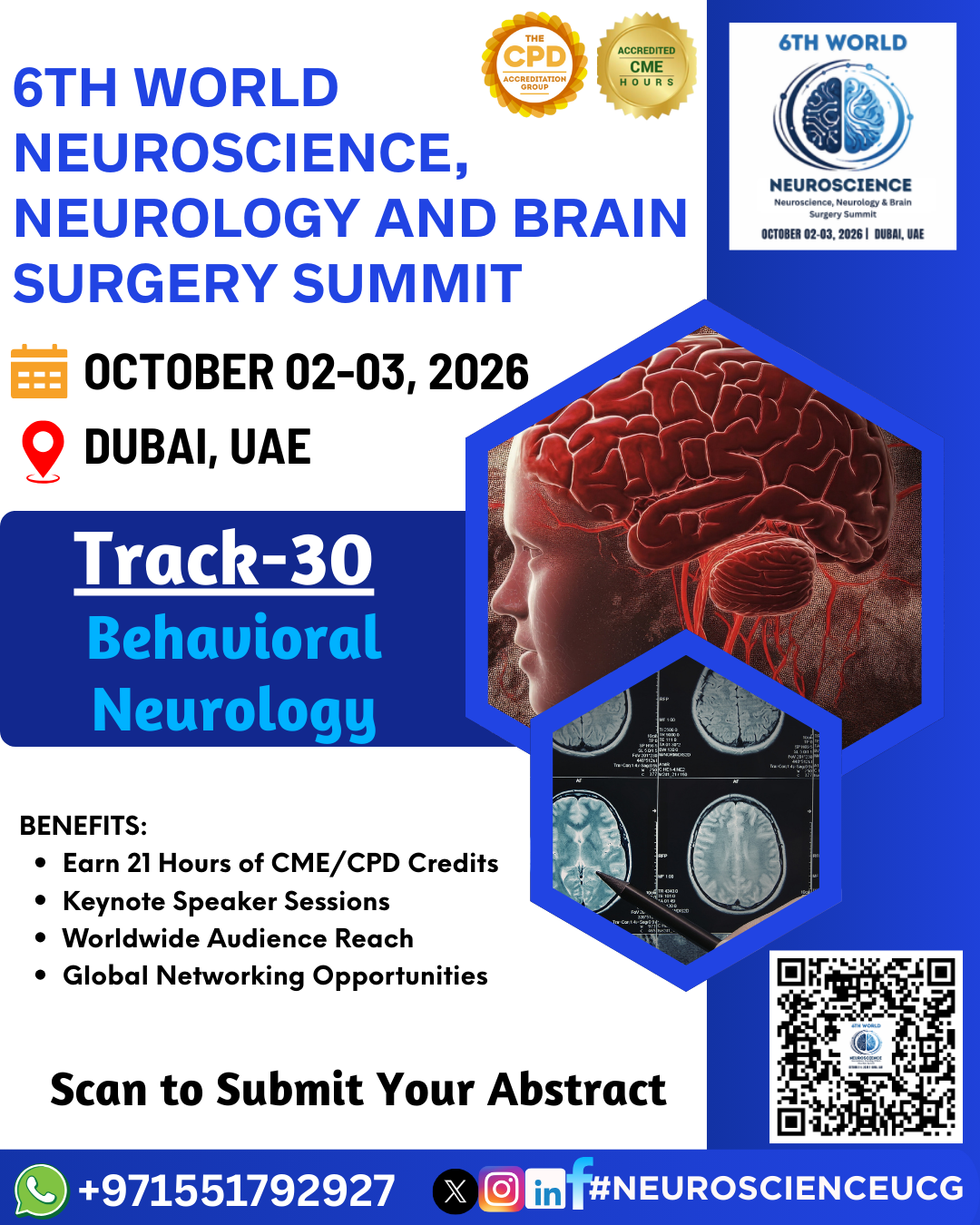



Sub Topics: Molecular and Cellular Neuroscience, Cognitive Neuroscience,...

Sub Tracks Clinical Neurology, Neurodegenerative...

SUB TOPIC; Neurocognitive Disorders, Neuropsychiatric Symptoms in Neurological Disorders, Cognitive and Emotional Regulation, Behavioral Neurology in Neurodegenerative Diseases, Behavioral Neurology Assessments, Treatment Approaches in Behavioral Neurology, Key Brain Regions in Behavioral Neurology
Behavioral neurology is a subfield of neurology that focuses on understanding how the brain influences behavior, cognition, and emotions. It is concerned with the study and treatment of neurological disorders that affect mental processes, including memory, language, attention, decision-making, mood regulation, and other cognitive and emotional functions. This field intersects with psychology, psychiatry, and cognitive neuroscience and often involves patients with acquired brain injuries, neurodegenerative disorders, and other conditions that affect cognitive functions.
Alzheimer’s Disease (AD)
Cause: A progressive neurodegenerative disorder characterized by the accumulation of amyloid plaques and tau tangles in the brain, leading to the death of neurons and synaptic loss.
Symptoms: Memory loss, confusion, difficulty recognizing people or places, language difficulties, and behavioral changes.
Treatment: Medications such as cholinesterase inhibitors (donepezil) and NMDA antagonists (memantine) help manage symptoms, but there is currently no cure.
Neuropsychiatric Symptoms in Neurological Disorders
Cause: A stroke, or cerebrovascular accident (CVA), can damage areas of the brain responsible for emotions, behavior, and cognition.
Symptoms: Post-stroke depression, aggression, apathy, and changes in personality.
Treatment: Rehabilitation and therapy, along with medications to manage mood or aggression, such as antidepressants or antipsychotics.
Cognitive and Emotional Regulation
The prefrontal cortex (PFC) is crucial for higher cognitive functions such as attention, judgment, planning, and emotional regulation.
Damage to the PFC, often due to injury or neurodegeneration, can result in impulsive behavior, poor judgment, and difficulty controlling emotions.
Behavioral Neurology in Neurodegenerative Diseases
Parkinson’s disease can cause cognitive and behavioral changes, including depression, anxiety, and hallucinations.
Dementia in Parkinson’s disease (PDD) often includes memory deficits, executive dysfunction, and visuospatial difficulties